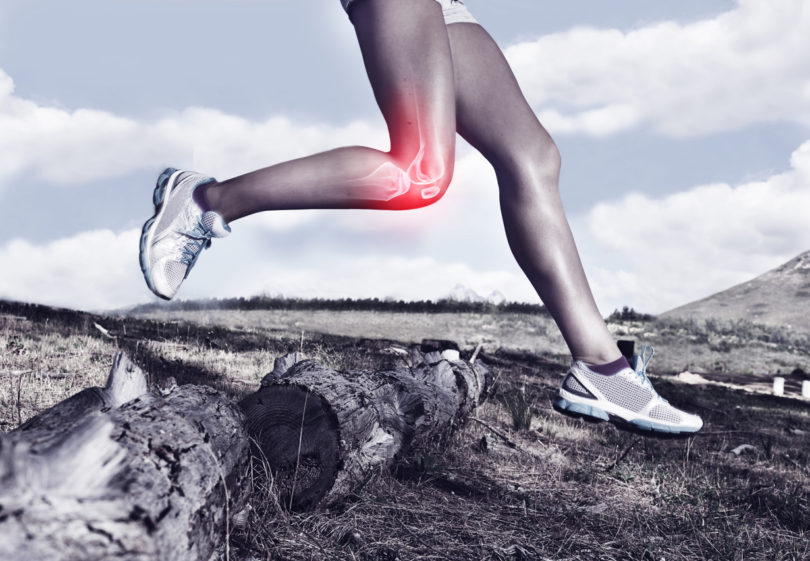If you’ve ever had a runner’s knee injury, it can be painful and debilitating. The feeling of instability and the popping or grinding sounds should not be ignored. That nagging pain, concentrated right in front of your knee, is aggravating. It makes running, walking uphill and climbing steps almost impossible.
Facing an injury is one of the most common threats runners face, regardless of their fitness levels. It can occur in people of all ages, so it is important not to ignore any nagging pains during a workout. Always allow yourself a “body check-in” when something does not feel right.
Runners are mentally trained to push through the normal running knee pains, but that can make injuries even worse. Pain is a vital warning signal, and is too often ignored. Your brain makes you believe that if you skip a run, you will fall off track and undo any progress that you have made. Runners train themselves to push through the normal aches and knee pains.
Besides the physical toll, injuries can also wreak havoc with the mind and lifestyle. Dennis Ramos, a psychotherapist from Corpus Christi, Texas, says there are various impacts from sports injuries.
Depending on the degree of impairment, an injured person may have to cope with loss of abilities, impaired mobility, change in routine or lifestyle, pain and the demands of rehab or recovery,” Ramos says.
An active or athletic person may suffer psychologically from the loss of his or her activities, especially since physical activity is one of the best things to help maintain mental and emotional health, Ramos says.
According to Ramos, impaired mobility can lead to:
• Reduced ability to cope with stress
• Lowered energy
• Grief and depression
• Anxiety
If the impaired mobility and activity extends for a long period of time, these effects can be much worse,” Ramos says. “Injury can cause drastic changes in routine or lifestyle as well, which can result in struggles with adjustment to change.”
It’s also important to recognize the effect an injury may have on a person’s income, job status and lifestyle, Ramos says. Any of these challenges can potentially cause symptoms of depression and/or anxiety.
“We know that severe chronic pain can often lead to depression in many individuals,” he says. “So, depending on the injury, this may be an important concern. Finally, the demands of recuperation, rehab, retraining and recovery can be quite challenging and cause increased stress levels.”
Overcoming Psychological Effects
After a sports injury, self-care is important, Ramos says. That means good rest, good nutrition, a good support community and a positive attitude. Individuals should try to stay as active as possible.
“When your physician approves, try to activate the parts of your body that are not injured,” he says. “If you have an injured leg, try to exercise your upper body, for example. Keep your mind active and engaged in hobbies, reading, games, social activities and other things you enjoy. Make concrete plans with your medical team to get back to the physical routines and activities you are able to do, as soon as possible. If you find that your energy or mood is low, or if you have ongoing anxiety, consult your medical team and a therapist to help you cope. Remember that depression can sometimes be one of the symptoms of injury, so be careful to let someone you trust know how you are doing, and seek professional help as soon as possible.”
The bottom line: do not ignore any pain in your body. If it gets worse, stop the workout and see how you feel the next day. Take time to breathe and relax, refocus and prioritize self-care.


